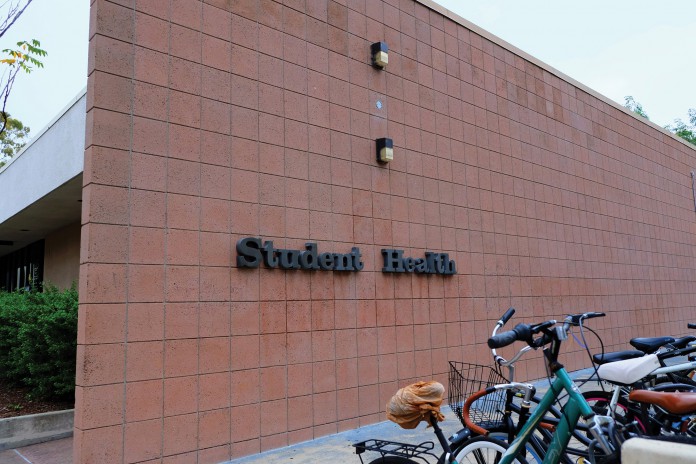Gwendolyn Wu
Staff Writer
The Office of Financial Aid at the University of California, Santa Barbara has been working on a new plan to reduce financial aid for students who opt out of Gaucho Health Insurance (GHI). The proposal is set to be finalized in the upcoming weeks, and will be put into effect for the 2015-2016 academic year.
GHI covers a wide range of benefits, including full access to Student Health with no additional fees, and access to full medical, dental, and vision care. Currently, GHI costs approximately $2,568 per year. About 50 percent of students opt out of GHI, with many preferring to use their family’s insurance plans, which could be cheaper by almost $1,000 for the student. The Office of Financial Aid is seeking to minimize using these funds for costs that aren’t the university health insurance plan by reducing money for students who opt out.
Under the proposal, students who waive GHI will still receive some financial aid, but the money that would theoretically cover GHI would be the total subtracted from their financial aid package. Money would still be given for co-pays but the total would shrink because for-profit insurance providers have cheaper premiums than GHI does. The money would be distributed according to an industry standard of premiums, based on the average generated by a survey of UCSB students. If a student pays more than what the standard is, they may request a grant from the Office of Financial Aid to cover it.
Associated Students’ Office of the President (ASOP) and Financial Aid have been working to make the new proposal beneficial to as many students as possible. At a forum about GHI, AS President Ali Guthy and Internal Vice President Angela Lau clarified some of the concerns that ASOP had when in talks with Financial Aid. As the office explained to Guthy and Lau, the point of the proposal is to make financial aid more efficient. However, ASOP does not believe that this will make it more efficient or work in the best interests of students.
“Our biggest concern is not those who get all the grants, like Pell, Cal Grant, the UCSB Grant, but those who can’t pay for college themselves, but aren’t high need students,” said Lau.
Some students use the refunds from money not spent on paying for GHI to pay their own insurance premiums, if their families don’t already cover it. Financial aid funds allocated to these students for the purpose of covering health insurance are also often used for other necessities, such as textbooks, groceries, and rent.
ASOP has been pushing for transparency from the Office of Financial Aid, which has said the plan will put approximately six million dollars back into their hands. The money would be redistributed, but the office has not said how. It is possible that it would be used for new students, and/or for returning students who did not qualify for the full financial aid fund during the 2014-2015 academic year.
“We’re asking if that is a valid solution we’ve arrived at, or should we be pushing for something else,” explained Guthy. “The specificity of how money will be used is vague.”
Some worry that the compromise with GHI and the Office of Financial Aid would incentivize others to stay on the campus health insurance plan, strengthening the monopoly that the school has on health insurance. Many believe measures to keep Financial Aid from blocking people from waiving out should be implemented. These concerns come after students covered by Kaiser Permanente could not opt out of GHI, since it is located outside of the waiver’s requisite 30 mile radius for health providers. For the 2015-2016 academic year, the radius has been increased to 50 miles.
As revealed at the forum, GHI is the most expensive campus health insurance plan in the entire University of California system. Undergraduate and graduate students share the same health insurance plan. If the two groups had separate health insurance plans, costs for undergraduates would be lower, while graduate plans would be more expensive. At other UC schools, graduates pay more money with the campus health insurance plan. Most graduate students at UCSB opt out of GHI, potentially because they pay for their own plans already or have families or other dependents that make the GHI plan even pricier. If the proposal to limit financial aid for those who opt out is carried out as is, it will be necessary to ensure that financial aid goes back to undergraduates, since 90 percent of students on campus are undergraduate students.
For the time being, the GHI plan remains as is, with deep financial impacts looming over the population. Within the upcoming weeks, a finalized plan regarding financial aid for students waiving GHI will be revealed.











